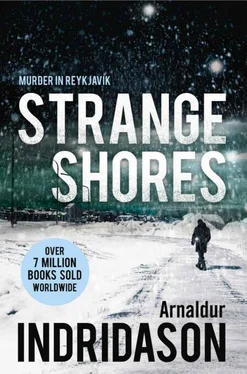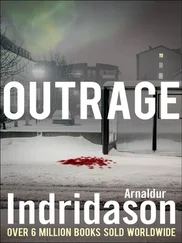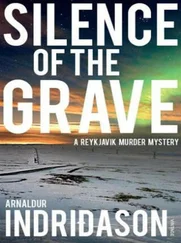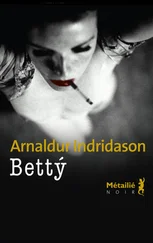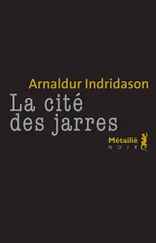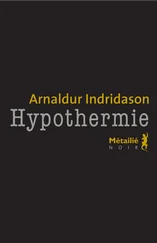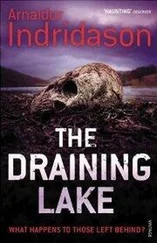Arnaldur Indridason - Strange Shores
Здесь есть возможность читать онлайн «Arnaldur Indridason - Strange Shores» весь текст электронной книги совершенно бесплатно (целиком полную версию без сокращений). В некоторых случаях можно слушать аудио, скачать через торрент в формате fb2 и присутствует краткое содержание. Год выпуска: 2013, Издательство: Random House, Жанр: Полицейский детектив, на английском языке. Описание произведения, (предисловие) а так же отзывы посетителей доступны на портале библиотеки ЛибКат.
- Название:Strange Shores
- Автор:
- Издательство:Random House
- Жанр:
- Год:2013
- ISBN:нет данных
- Рейтинг книги:4 / 5. Голосов: 1
-
Избранное:Добавить в избранное
- Отзывы:
-
Ваша оценка:
- 80
- 1
- 2
- 3
- 4
- 5
Strange Shores: краткое содержание, описание и аннотация
Предлагаем к чтению аннотацию, описание, краткое содержание или предисловие (зависит от того, что написал сам автор книги «Strange Shores»). Если вы не нашли необходимую информацию о книге — напишите в комментариях, мы постараемся отыскать её.
Strange Shores — читать онлайн бесплатно полную книгу (весь текст) целиком
Ниже представлен текст книги, разбитый по страницам. Система сохранения места последней прочитанной страницы, позволяет с удобством читать онлайн бесплатно книгу «Strange Shores», без необходимости каждый раз заново искать на чём Вы остановились. Поставьте закладку, и сможете в любой момент перейти на страницу, на которой закончили чтение.
Интервал:
Закладка:
‘Here in connection with the smelter, are you?’ he had asked, noticing that Erlendur was not local.
‘No,’ Erlendur had answered curtly. ‘And three packets of Viceroy, please.’
The young man, who was wearing ripped jeans and a slashed T-shirt, had fetched the cigarettes from a drawer and laid them on the counter.
‘Working on the dam, then?’
‘No. Could I have some coffee for my Thermos?’
‘Help yourself,’ the young man had said, gesturing to a coffee machine with a half-full jug that stood on a rather dirty table in the corner. ‘It’s free. What do you do, then?’
Erlendur had filled his flask and paid for the cigarettes. The shop assistant had followed his every move. Realising more questions were imminent, Erlendur had made his way quickly to the door.
‘Are you the bloke up at the deserted. .?’ he had heard the young man ask as the door slammed behind him.
‘Pushy little sod,’ Erlendur had muttered as he left.
After finishing his frugal breakfast, he set out to drive the fifty or so kilometres to Egilsstadir, the administrative centre of east Iceland. To begin with, he followed the coast road around the headland at the foot of Mount Hólmatindur and caught glimpses of the feverish activity around the construction site in Reydarfjördur. Then, leaving the fjords behind, he drove inland where the road clung to the steep, gully-scored mountainside, before descending into the Fagridalur Valley and following the river in its rocky gorge, which brought him down to Egilsstadir in no time at all. Driving conditions were good but the stream of heavy-goods vehicles hammering in both directions, destroying the peace of the morning, meant he kept to a sensible speed.
He managed to locate the care home and asked the receptionist for Kjartan Halldórsson. He was directed to speak to one of the attendants, who escorted him to a small TV lounge where a man of about seventy sat watching cartoons. The girl bent to his ear.
‘You’ve got a visitor, Kjartan,’ she announced in a loud, sing-song voice, as if addressing a small child.
The man straightened up in his chair, mumbling.
‘’E wants a word with you,’ the girl bellowed.
Erlendur thanked her and greeted the man, who had thick grey hair and bony, work-worn hands. He seemed surprisingly frail and arthritic for his age. In the ensuing small talk Erlendur discovered that the man had a degenerative disease which had cost him the sight in one eye.
‘Yes, I’m almost blind on this side,’ Kjartan explained.
‘That’s too bad,’ said Erlendur, unsure how to react.
‘Yes, it’s a bit of a nuisance,’ agreed Kjartan, ‘especially since the other eye is going too. They thought it would be best to stick me in here in case I had an accident. I can hardly even make out the screen any more.’
Erlendur assumed he was referring to the television. They talked about visual impairment for a while, before he was finally able to get to his purpose, saying that he was researching cases of people going missing in the mountains, and had heard that Kjartan’s aunt Matthildur had vanished when walking from Eskifjördur to Reydarfjördur in January of 1942.
A radio was playing somewhere, and the poignant strains of a 1960s pop song — ‘Spring in Vaglaskógur’ — carried to where they were sitting.
‘Yes. Yes, that’s quite right,’ Kjartan said, apparently pleased to be of assistance, in however minor a way. ‘She was my mother’s sister, you know, though I never met her.’
‘Do you have any memory of the incident?’
‘No, I can’t say I do. I was very young when it happened and we were living in Reykjavík. But I clearly remember hearing about it. I must have been seven. My mother was the eldest sister. She moved to Reykjavík as a young woman and I was born there.’
‘I see.’
‘I left home early myself, you know. Started a family. Went to sea. We used to be able to catch what we liked in those days. Now it’s a rich man’s game, thanks to all these quotas.’
‘So you moved out east?’
‘Yes, my wife was from these parts. But I’ve never really been in touch with my relatives here. Hardly know them.’
‘Matthildur went missing the same night some British soldiers got into difficulties,’ said Erlendur.
‘That’s right,’ said Kjartan. ‘There was a terrible storm on the moors — hurricane-force winds, they said. People couldn’t stand upright. Incredibly dangerous conditions.’
‘Did the search last long?’
‘Several days, from what I heard. But it was hopeless, of course.’
‘Do you remember if your mother talked much about the accident? Was there any aspect that struck you as out of the ordinary?’
‘Not that I recall.’
‘What about Matthildur? Did your mother mention her at all? How she was? Or whether they got on?’
‘They didn’t have much contact. My mother was in Reykjavík, and the roads were dire in those days.’
‘I was wondering if you had any papers connected to Matthildur that belonged to your mother or aunts,’ said Erlendur. He had put the same question to Hrund, who said she had nothing herself but that Matthildur might have corresponded with her other sisters, though if she did Hrund couldn’t remember hearing about it.
‘A few bits and bobs,’ Kjartan said, after wrinkling his brow.
‘Did she and your mother write to each other in those days — that you know of?’
‘My sister sent me a trunk after our mother died, saying I could chuck it out if I liked. There was all sorts of rubbish in there: rental contracts, old bills, tax returns. As far as I can remember, she’d kept a whole pile of newspapers as well. Our mother never threw anything out. I don’t know why my sister sent it to me. I didn’t have any use for it. There were some letters too but I never did more than glance at them.’
‘So you’ve never read them?’
‘Good heavens, no. I had quite enough on my plate without wasting time on that sort of thing.’
‘Do you still have the trunk?’
‘I think so,’ said the old man. ‘My son looks after the few belongings I’ve hung on to. You could talk to him. Are you writing about the storm, then?’
‘I may do,’ said Erlendur non-committally.
12
It was after midday by the time Erlendur pulled up outside the house belonging to Kjartan’s son, Eythór. It was a large, detached villa, not far from the Egilsstadir sixth-form college. Eythór, who had popped home for lunch, worked for a firm of contractors involved in the dam project in the highlands. Erlendur repeated his spiel about researching stories of accidents in the mountains and mentioned that he had just come from visiting Eythór’s father, who had given him permission to look at some old papers in a trunk his son was keeping for him.
Intrigued, Eythór asked more about Erlendur’s research and whether he was writing a book. Erlendur managed to dodge the question without telling an outright lie. Eythór said he hardly knew why he was keeping the trunk: he had got rid of lots of his father’s junk when the old man went into the home, and should by rights have binned that too. He had taken a look inside but it contained nothing but papers. Next time he cleared out the garage it would probably go to the dump.
‘How was the old boy, anyway?’ Eythór asked, and it took Erlendur a second or two to realise that he was enquiring after his father.
‘Fine, I believe,’ he replied.
‘His sight’s not getting any better.’
‘So I gather.’
‘I haven’t been able to look in on him for ages. That’s what happens when you’re building the biggest dam in Europe — it takes up all your time. Speaking of which — you couldn’t come back this evening, could you? I’m already late.’
Читать дальшеИнтервал:
Закладка:
Похожие книги на «Strange Shores»
Представляем Вашему вниманию похожие книги на «Strange Shores» списком для выбора. Мы отобрали схожую по названию и смыслу литературу в надежде предоставить читателям больше вариантов отыскать новые, интересные, ещё непрочитанные произведения.
Обсуждение, отзывы о книге «Strange Shores» и просто собственные мнения читателей. Оставьте ваши комментарии, напишите, что Вы думаете о произведении, его смысле или главных героях. Укажите что конкретно понравилось, а что нет, и почему Вы так считаете.
